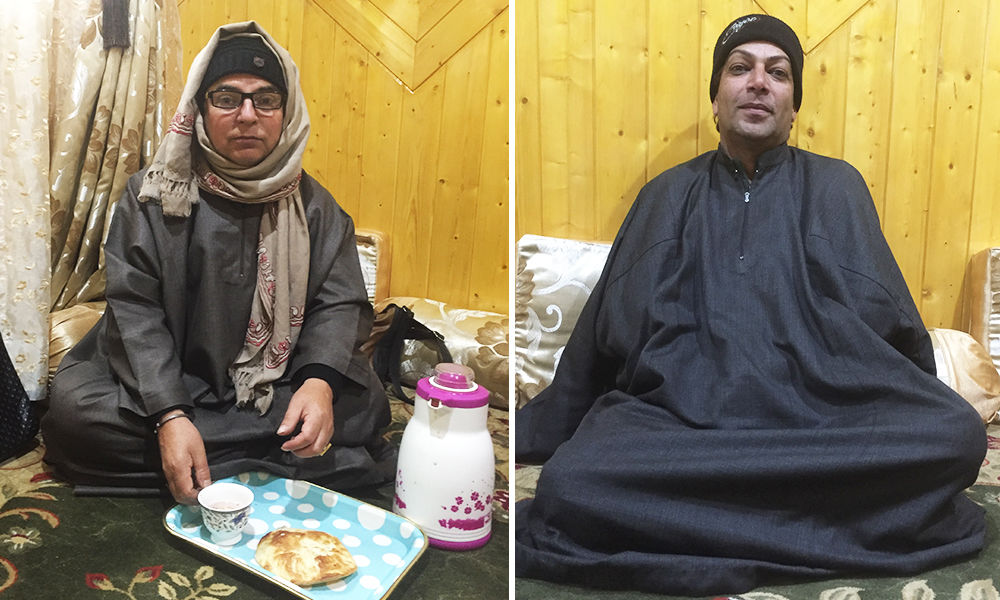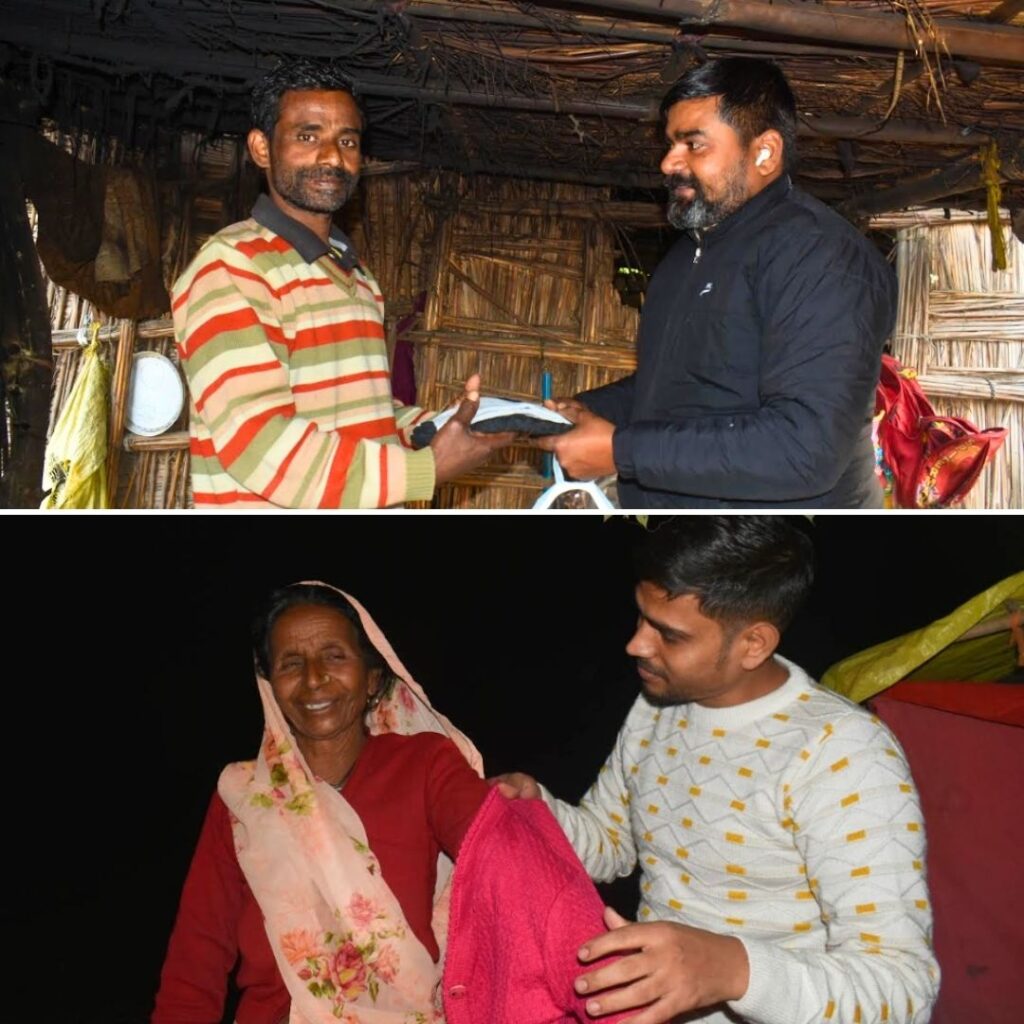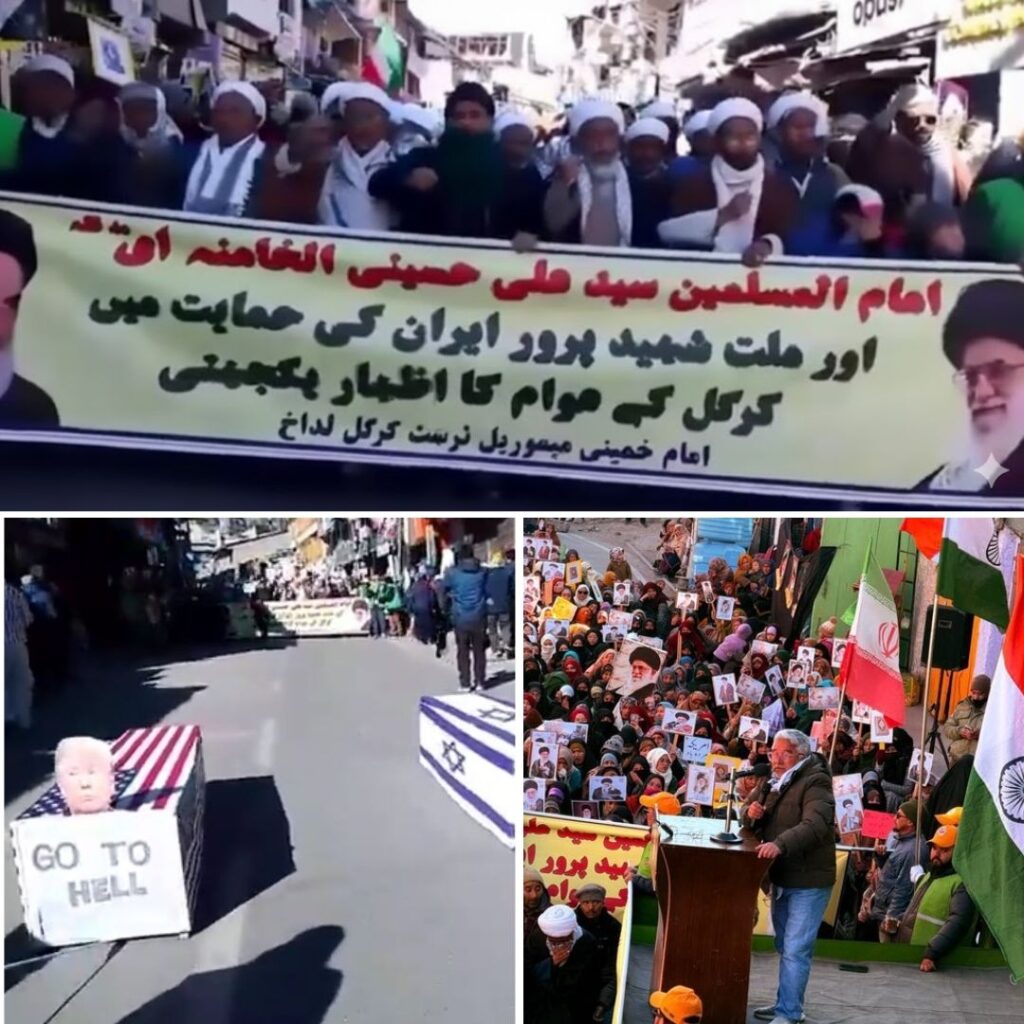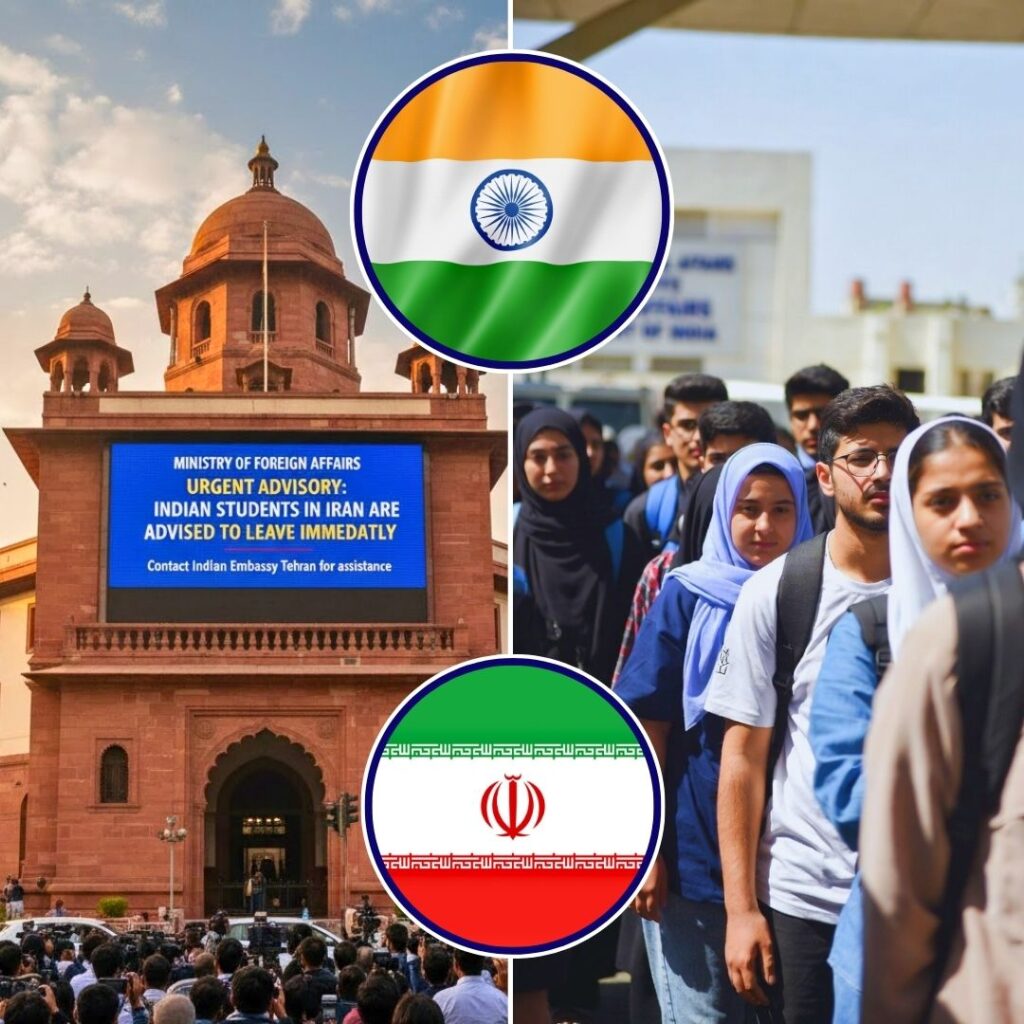On a cold sunny day, while walking through the criss-cross, narrow lanes in Srinagar’s Dalgate area, I requested people to show me directions where Babloo lives. It looked like the entire vicinity wanted to come and help me to reach Babloo’s house.
When I entered the main gate and asked for Babloo, a lady in her late 40’s with a smile came out and welcomed me.
‘Walew walew aechew wander, sue asea pakan (Please come inside Babloo will be coming),’ she said.
She accompanied me to a room, made me sit and brought a Kangri (An earthen pot woven around with wicker filled with hot embers used to keep chill at bay).
‘Does Babloo live here on rent?’ I asked.
‘No, this is her home and I am her sister-in-law,’ she said with a smile and left the room.
Transgender people in Kashmir generally do not live with their families but Babloo does live with her family and this is rarely seen.
Babloo, 45, grew up in the same vicinity while watching and adoring his Guru, Haji Ghulam Mohammad.
When Babloo came, he started sipping nun chai (salted tea). Taking a deep breath, he explained how post-August 5th was the worst phase for the transgender community in Kashmir.
‘India took a drastic step by scrapping Article 370 and did it at the wrong time,’ explained Babloo, whose real name is Mohd Aslam.
August to October is the peak season for the marriages in Kashmir considering the weather conditions.
On August 5, 2019, Narendra Modi led BJP government scrapped Article 370 that provided special status to the state of Jammu and Kashmir and bifurcated the state into two Union Territories – Jammu Kashmir and Ladakh.
‘Everything has vanished. We do matchmaking and cater to families who are associated with businesses, how will they pay us when they do not have means to survive for themselves,’ Babloo lamented with a deep sigh.
Most transgender people in Kashmir are Menzimyeors (matchmakers) or singers and dancers at weddings. Some of them have earned huge fame and recognition as singers like Reshma.
‘People taunt us and call us Lanczh. Majority of us do not have family support. We live on our own and now without any work, we are fighting for our survival,’ says Babloo.
Lanczh is a derogatory term used to refer to transwomen in Kashmir, implying impotence or powerlessness.
Babloo is well known in and around Srinagar and lives with his elder brother and his family.
‘My brother never stopped me or taunted me. He always tells me, one should not be ashamed of one’s work. But now we are jobless as there is no work,’ he says with a sad look on his face.
‘I have not earned a single penny after the abrogation of Article 370 and I am completely dependent on my brother. During the tough time when the curfew was implemented they (my brother’s family) not only supported me but helped some of my community members as well,’ Babloo added.
Miles away from Babloo’s residence, Shabnam Subhan, left her home in Sopore about 25-years-ago.
Her family wasn’t happy with her feminine features and continuously nagged her to ‘be a man.’
She had to drop out of school at an early age because of the consistent name-calling.
‘I was thrown out of my house when I refused to budge off. I moved to Srinagar, got together with the transgender community and took up singing to survive. Throughout the day, I used to do matchmaking and during nights, I would perform in marriage ceremonies. I have worked really hard to stay here and continue to exist,’ says Shubnam, who now lives in Srinagar’s Basant Bagh area and works with Babloo on a partnership basis.
‘We are sitting idle since August 5. With changing trends, many Kashmiris are opting for love marriages while there is not much scope for matchmakers now,’ she says.
Once upon a time, all Kashmiri family weddings had a transwoman to fix the matches and perform at weddings.
‘Love marriages by girls and boys have taken our 90% of the business and now Narendra Modi government’s wrong decisions have taken remaining part from us,’ Shubnam says in a dejected tone and a chirpy voice.
The transgender community for a long time has been treated badly and has been subjected to ‘ridicule’ and ‘discrimination’, which is the moral failure of the society.
‘Our work mainly depends on mobile phones and travelling. But we have been put under communication clampdown. We are not able to travel or go out to check on our community members, who are weak and elderly. What is our fault? Is there no one who can understand our plight and pain?’ asks Shubnam.
After Article 370 was scrapped, India imposed a complete blockade of communication with a total media blackout as well.
After a week, some landlines started to work and postpaid phone services started on October 14, 2019, after 71 days. 2G Internet was restored recently after six months with access to only 300 websites and a complete ban on social media sites.
A 70-year-old transgender, Ghulam Hassan Sofi, is deaf and dumb and lives in Shubnam’s locality. Even Shubnam was not able to check on him due to curfew and restrictions…












